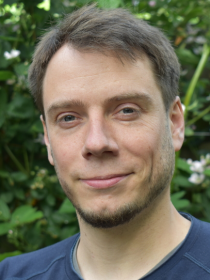T. (Thomas) Hackl, PhD

Research interests
How do organisms adapt, differentiate and diversify? How are they shaping and are shaped by the communities and ecosystems they occur in? Addressing these question to to gain a deeper understanding of the mechanism underlying the immense diversity of life is my overarching research interest.
To do so, I study organisms across all domains of life (exotic viruses, unicellular eukaryotic hosts, endophytic fungi, carnivorous plants, open-ocean cyanobacteria and coastal soil microbiomes) focusing on processes that accelerate evolution in these systems, such as horizontal gene transfer via mobile genetic elements, viruses or vesicles.
For my research, I harness the power of genomics and big data, leveraging cutting-edge sequencing technologies and devising workflows and software to maximize their use. Moreover, I am developing tools for data exploration, integration and interpretation with a focus on genomics data visualization.
Combining these efforts, I aim to gain new insights into the concert of ecology and evolution that brings forth the wondrous living world around us.
